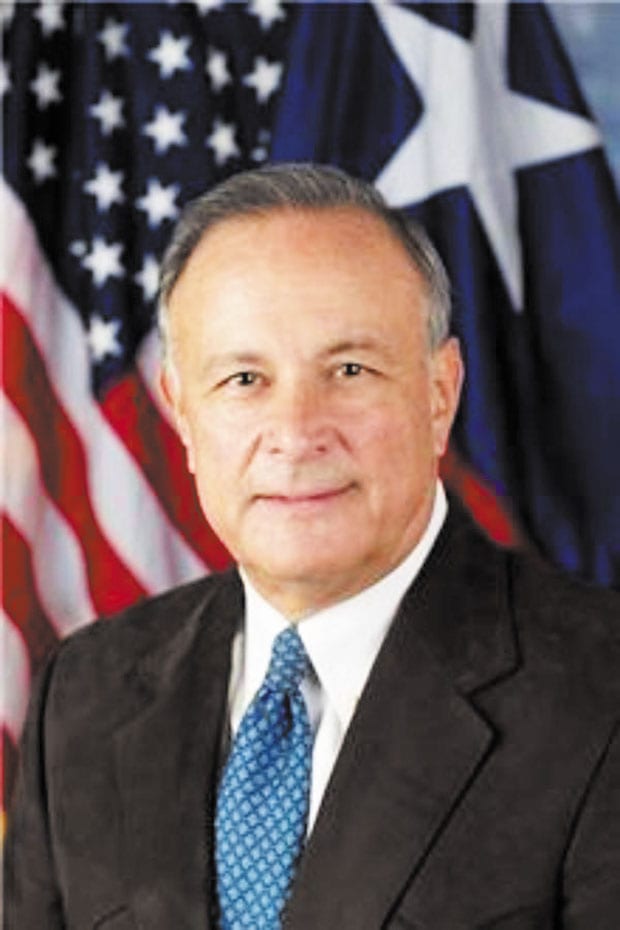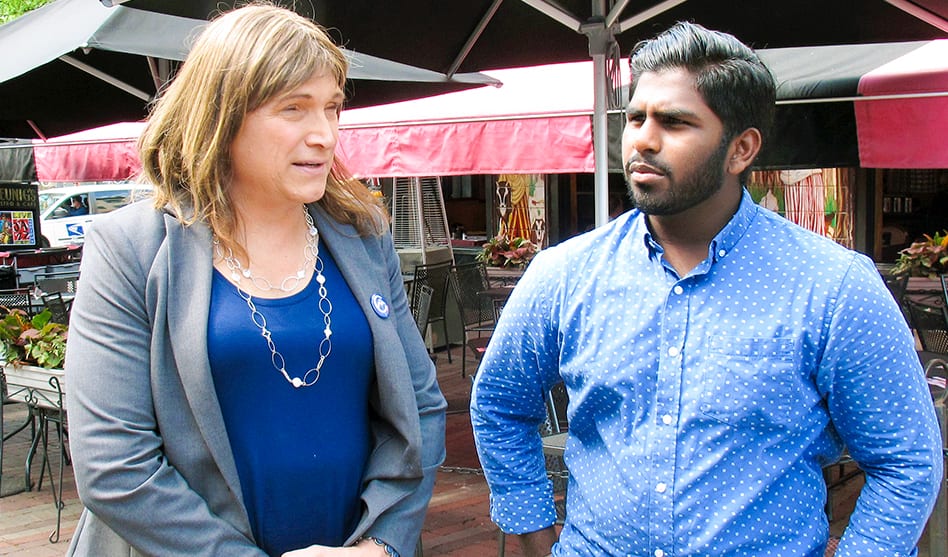Even after voter ID law changes, transgender people still face barriers in casting their ballots

carlos cascos
JAMES RUSSELL | Contributing Writer
james.journo@gmail.com
On July 20, a federal appeals court struck down parts of Texas’ stringent voter identification law after a multi-year legal battle regarding its constitutionality. The United States Fifth Circuit Court of Appeals in New Orleans agreed with a previous decision the law violated the Voting Rights Act.
Supporters of the law, both in Texas and around the country, argued requiring photo identification was necessary to combat voters attempting to vote multiple times using different identities. Yet an investigation conducted by Arizona State University’s News21 showed scant evidence of instances of voter fraud or prosecution by the state.
On Aug. 10, a federal judge approved a deal reached between the state and civil rights groups to accommodate and educate voters about the various forms of identification available. Part of those efforts include accommodating voters who cannot obtain one of the seven required forms of photo identification, according to Texas Secretary of State Carlos H. Cascos.
Under the court order, a voter may vote by signing a declaration known as a Reasonable Impediment Declaration at the polls, explaining the voter was unable to access a photo identification and stating that the voter is the same person on the presented one of several forms of supporting form of identification.
But the barriers facing transgender voters continues.
Even before the voter identification law became law in 2011 — over the objections of Democrats and civil rights groups, including the Transgender Education Network of Texas — transgender people faced plenty of legal, economic and social barriers to have their identity recognized, much less exercising their right to vote.
“This law would make transgender persons out themselves at the polls,” former TENT Executive Director Katy Stewart told Dallas Voice at the time.
The National Center for Transgender Equality in 2014 reported while photo identification laws create additional barriers for anyone who can’t obtain the required ID, additional hurdles exist for transgender people. In Texas, for instance, because of state laws and conservative judges, changing your name on one of the supporting documents permitted by the state — like a utility bill — can be a hassle. To change a birth certificate, driver’s license or simply change your name requires a court order in your home county.
That’s relatively easy in liberal counties like Dallas or Travis. But what about in staunchly conservative counties like Collin or Tarrant?
Good luck.
According to a 2012 Williams Institute report, 41 percent of transgender people who have transitioned did not having an updated driver’s license. 27 percent of transgender citizens who have transitioned reported that they had no identity documents or records that list their current gender.
The state has not made it clear if voter education efforts include outreach to transgender people. (In fact, anti-LGBT Republican Attorney General Ken Paxton has sealed the documents related to what exactly those efforts include.)
According to Cascos’ office, if the voter’s name on the approved photo identification or supporting document does not exactly match the voter’s name on the voter registration card, election officials now can review if the name and identification are “substantially similar.”
But social stigma and misunderstanding among the general public about transgender people continues, including at the polls.
In fact, the NCTE report states “many poll workers [will] challenge transgender people about the accuracy of their ID, often based on their appearance.”
Poll workers often are given major discretion when it comes to working with voters.
State officials warned in a recent letter that they are not to question the voter’s impediment to accessing a photo identification.
“You may not question…the reasonableness of any claimed impediment or the truth of the declaration,” according to the San Antonio Express-News, which obtained the letter. After signing the Reasonable Impediment Declaration, poll workers must allow the voter to “cast a regular ballot.”
But Brandon Beck, a professor at Texas State University and board chair for Transgender Education Network of Texas Voters, remains cautious.
“I’m glad that efforts are being made to allow more people access to voting. I’m curious to see how these changes play out. The major concern for trans people is still the connection to photo ID,” Beck wrote via e-mail. “If we do not present the same as when our photo was taken and haven’t the means to get a current photo ID, will we be able to vote?”
Beck and others will see when early voting begins October 24. Election Day is November 8.
This article appeared in the Dallas Voice print edition September 16, 2016.

